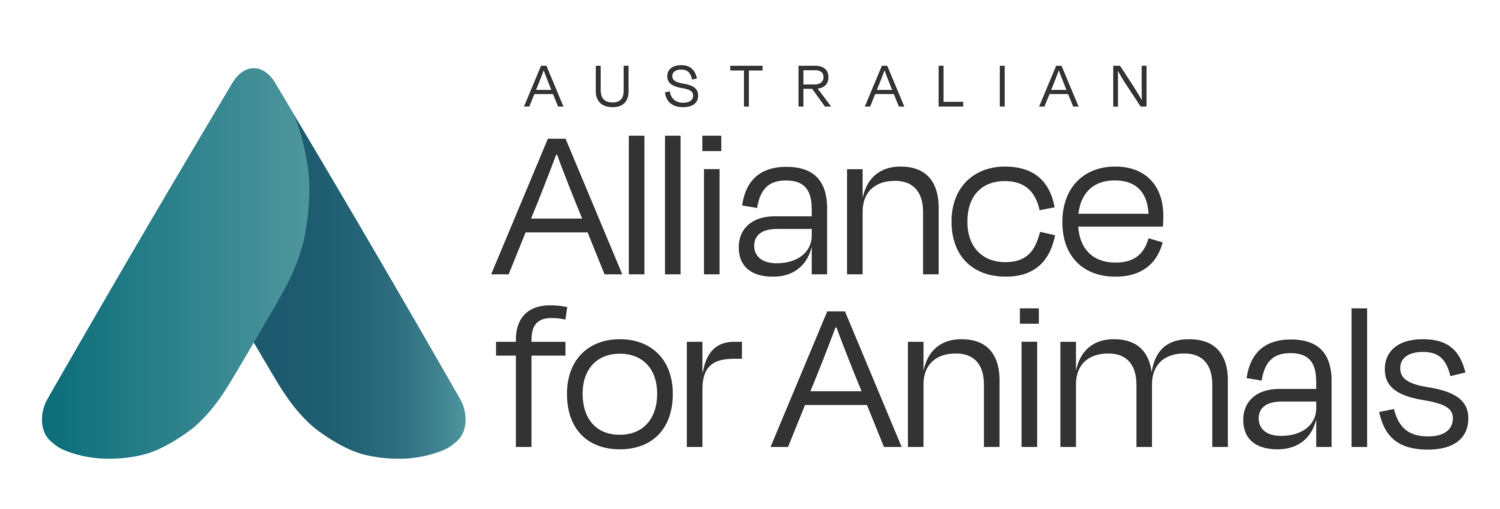Australia’s animal welfare system is broken – together, we can fix it
As a consumer, it can be difficult to see the failures within Australia’s animal welfare governance system. Animal-use industries are protected by a lack of transparency, which means consumers can easily be misled by clever marketing tactics.
The reality is, our laws, standards, and regulatory systems on the whole, are failing animals. Hens are still confined to tiny battery cages, sows are locked in stalls barely bigger than their bodies, lambs undergo live lamb cutting (mulesing) without pain relief, racehorses are beaten with whips, and dolphins are forced to perform for human entertainment. This is because within the current governance system there are conflicts of interest among those in power, inconsistencies across states and territories, loopholes in laws, and standards that ignore science and community expectations.
The #FairGoForAnimals campaign provides a clear pathway toward a fair and independent system, where the interests of animals and their wellbeing are enshrined in law, policy, and practice.
How is our animal welfare system broken?
Decision-makers are plagued by conflicts of interest
The current governance system is founded on conflicts of interest. Departments and ministers responsible for animal welfare are also tasked with promoting industry productivity and profitability. As a result, decision-makers and regulators can be resistant to pursuing higher standards of welfare if it will affect their economic goals. These competing goals can lead to a problem called “regulatory capture,” which happens when a regulatory body acts in a way that benefits the industry over the public interest.
The decade long phase out of battery cages is a prime example of industry interests outweighing animal welfare concerns.
Image: Farm Transparency Project
There is a lack of consistency and loopholes in laws
Although we have national standards and guidelines, there are no legislative processes for developing and adopting these standards on a state and territory level. This leads to a lack of accountability and uneven levels of protection for animals.
Additionally, these standards allow practices that conflict with the general duties of care outlined in the state and territory Animal Welfare Acts due to the use of legislative exemptions. This conflict results in a two-tiered welfare system where companion animals generally receive the full legal protections afforded by the Animal Welfare Acts, but commercially used animals do not, despite their similar needs and sentience. These broad exemptions allow practices that would otherwise be considered animal cruelty and breaches of the duties of care.
The standards often prescribe practices that are inconsistent with the duties of care outlined in the Animal Welfare Acts.
Image: Liss Ralston
Science and community expectations are ignored
Despite significant scientific advances and increased understanding of animal sentience, our regulatory systems are failing to evolve and improve standards for animals in line with our growing knowledge. Painful and outdated practices, like live lamb cutting (mulesing) and battery cages, continue due to these regulatory inadequacies. On top of this, laws do not have to consider or incorporate community expectations and concerns, despite 95% of Australians viewing farmed animal welfare to be an important issue and 86% believing the law should require all sentient animals to be provided with good welfare.
86% of Australians believe the law should require all sentient animals to be provided with good welfare.
Image: World Animal Protection
How can we fix Australia’s animal welfare system?
We need to redesign the system to remove conflicts of interest and elevate the importance of animals and their wellbeing in government. To achieve this, a number of governance and institutional reforms at both state and national levels are required. The #FairGoForAnimals campaign proposes six crucial reforms, presenting a clear path forward:
Ministerial recognition: Appoint dedicated Ministers for Animal Welfare to reduce conflicts of interest.
National Animal Welfare Commission: Create an independent body to ensure unbiased oversight, making the system truly independent.
State Animal Welfare Authorities: Establish dedicated government authorities to uphold animal welfare laws in each state.
Decision-making principles & sentience recognition: Embed guiding decision-making principles into animal welfare legislation and recognise animals as sentient beings with intrinsic value.
Fair and accountable animal welfare standards processes: Create new standard-setting and decision-making processes to ensure transparency and accountability.
Adequate funding: Allocate proper funding for animal welfare services in line with community expectations.
How will the reforms benefit animals?
These reforms will ensure that the interests of animals are a primary consideration in all related decisions. By setting higher standards, enforcing stricter regulations, and properly funding the initiatives, Australia has the potential to improve the lives of billions of animals.
A #FairGoForAnimals means treating them in a way that respects their sentience and protects their welfare.
You can help build a fairer Australia for animals
By using your voice to call for these important reforms, you are helping reshape animal welfare in Australia. This is a significant opportunity to ensure that Australian laws, policies, and practices respects animals and their wellbeing. Endorse the #FairGoForAnimals campaign by adding your name to the growing list of supporters and follow us on social media for more opportunities.






